He is Denmark’s fastest on the roads – but still a rookie in the hospital
In September, Jacob Sommer Simonsen knocked almost two minutes off the Danish marathon record, which had been untouched for 39 years. Besides running 190 kilometres every week, he’s also doing his Master’s degree in medicine at Aarhus University and started his clinical training only weeks before the record-setting race. And he’s recently become a father for the second time.
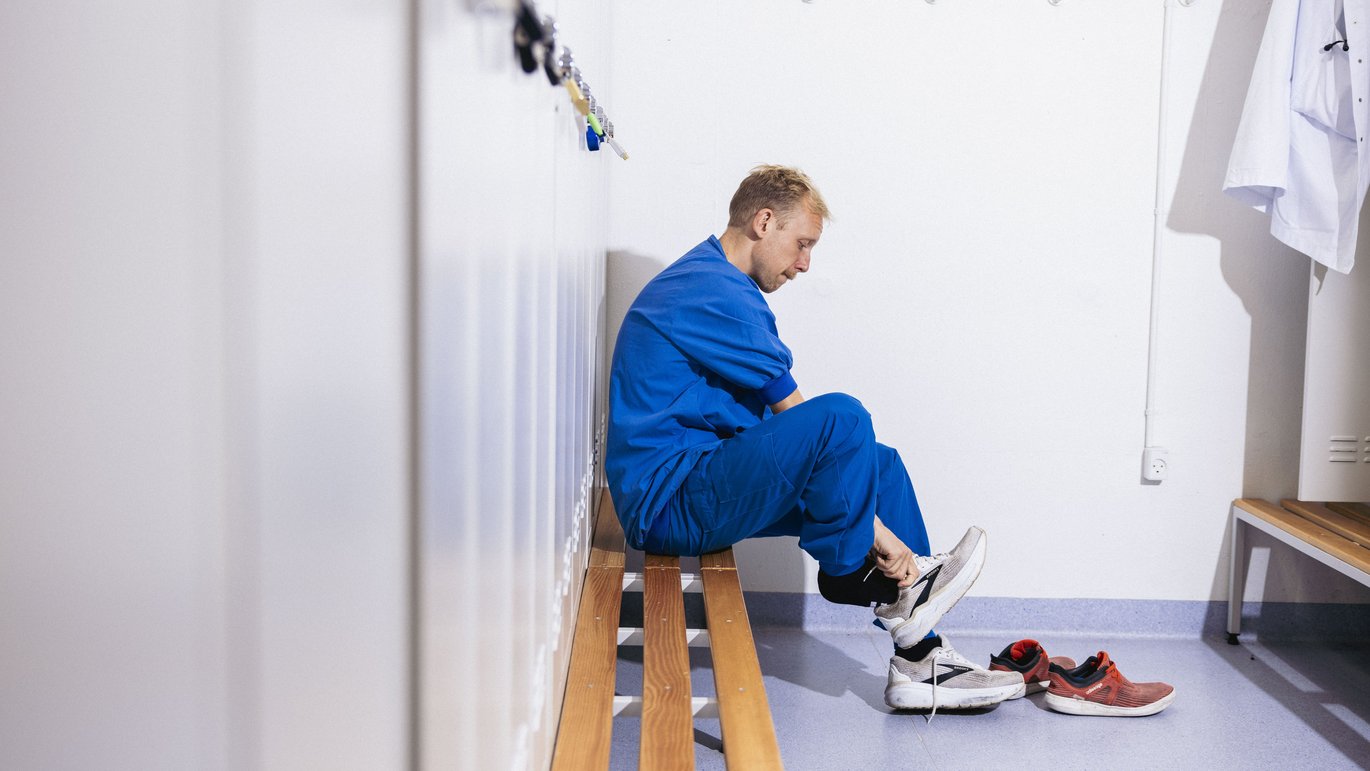
Most people can understand that studying full time while having two children can be a handful. Add running 190 kilometres a week to that and most people probably won’t be able to relate. But one person can. Jacob Sommer Simonsen is the newly crowned Danish record holder in the marathon distance. A feat he managed to accomplish while doing his clinical training at the Department of Cardiology at Aarhus University Hospital (AUH).
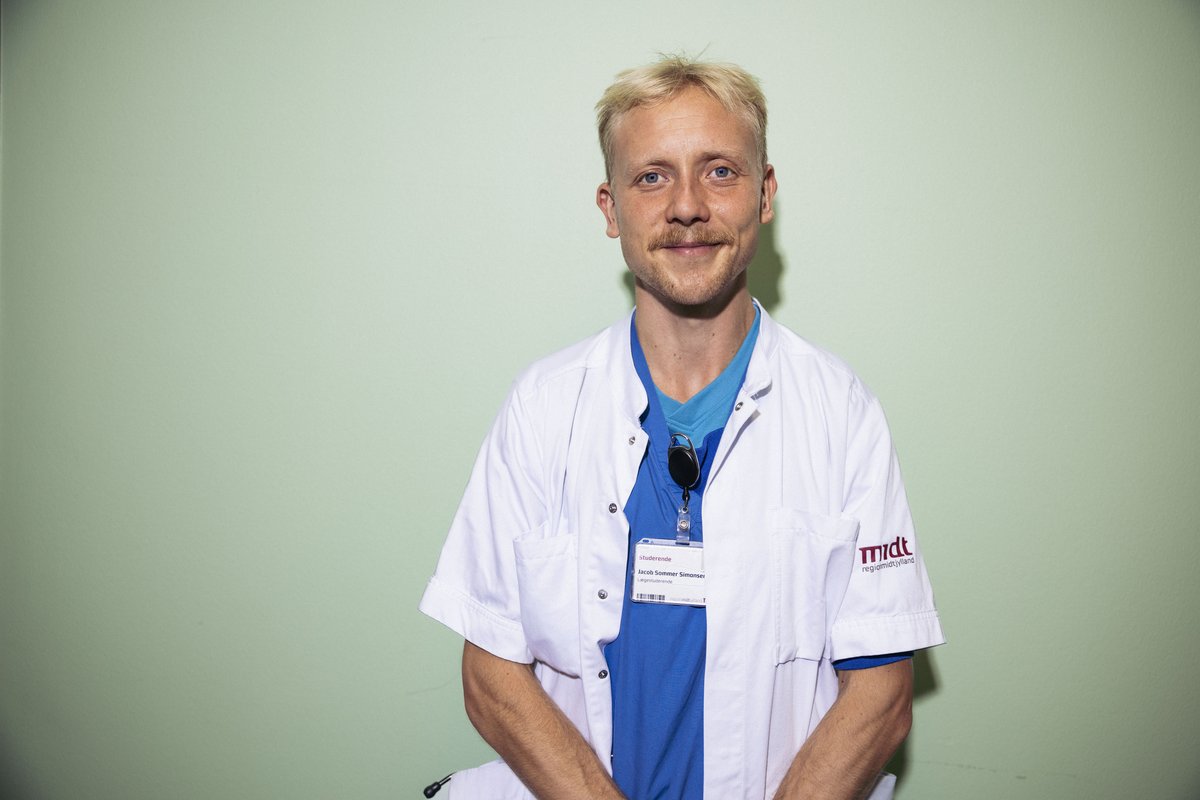
He runs the seven kilometres from his home to and from Aarhus University Hospital on the days he’s able to. Some days, like today, he runs in a loop to make the route ten kilometres instead:
“When I clock in for my shift, I change out of my running shoes, park my first training session and jump into my ‘doctor shoes’,” says Jacob Sommer Simonsen with a smile and continues:
“We’re not allowed to wear running watches in the hospital, so I leave mine in the changing room. Then I’m out of running mode, and I can focus on learning as much as possible from all these skilful cardiologists.” One of the benefits of running, he thinks, is that it can be incorporated into everyday life.

100 per cent focus
Jacob Sommer Simonsen became a father for the second time in September. And as a dad, elite runner and medical student, his time and focus need to be carefully managed:
“I organise my time so that I prioritise whatever needs 100 per cent of my focus at that specific point. Right now, after the marathon, I’m prioritising family, as well as learning as much as possible while I’m at AUH,” says the marathon runner.

The time after the marathon was particularly hectic as he tried to prioritise family and education while having to handle the media attention following the record:
“The first week at the clinic after the race was more hectic than I expected. There was suddenly a lot of media coverage, which was in the back of my mind every time the phone rang. It was quite distracting. But already the following week I felt myself relaxing and putting the race behind me when I came to the hospital,” says Jacob Sommer Simonsen.
Record holder and rookie
Even though Jacob Sommer Simonsen is now Denmark’s fastest ever runner at the legendary distance, he’s still somewhat of a newbie at AUH: “Out here I’m a rookie,” he explains.
Jacob Sommer Simonsen carefully explains the rules and alarms at the hospital to us. As he walks us through the basement, he remarks to two of his fellow students that he feels “a little awkward” being followed by a student reporter and photographer.
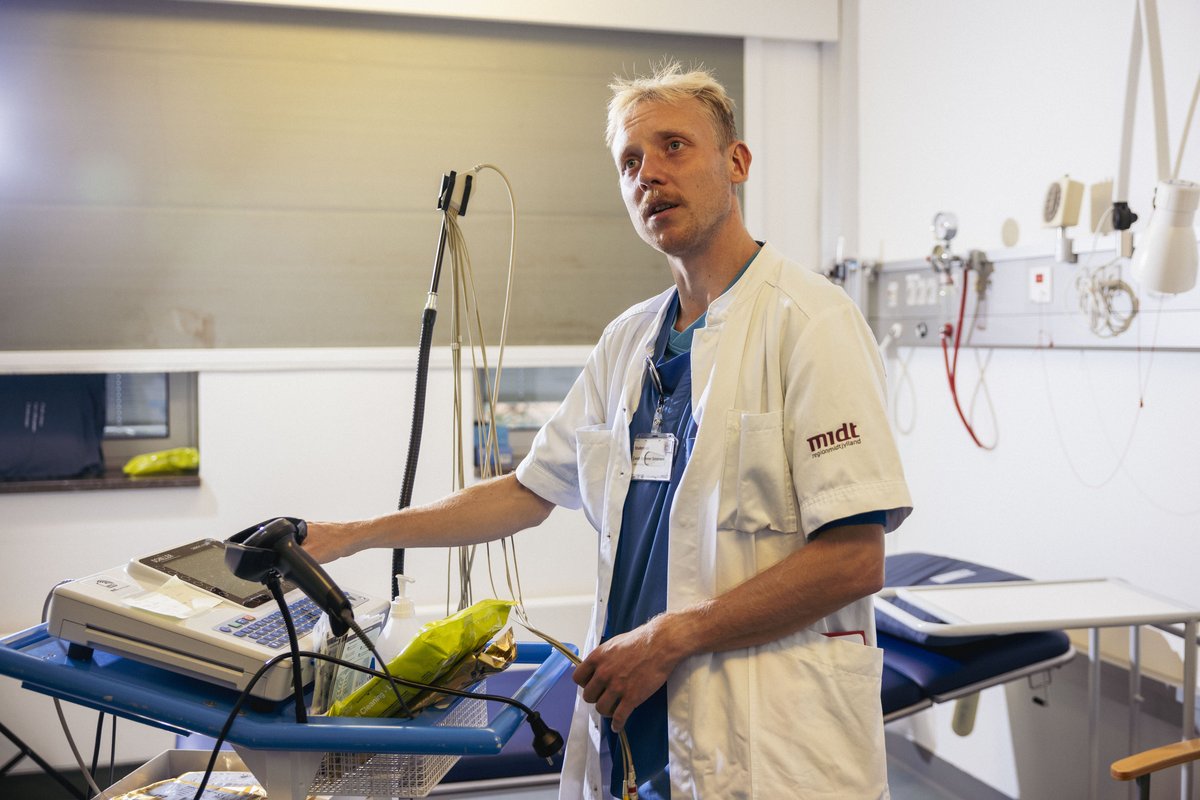
“I think it was actually very healthy for me to come out here after the race, where that’s not what people care about. At a time when I was getting a lot of congratulations, I came out here and realised that there are more important things going on: Yes, I ran a good time, but out here someone might have saved two lives overnight. It put things into perspective.”
Clinical training enables medical students to take their education off the page.
“It’s one thing to have read about cardiology in a textbook. Coming out here to AUH, a place so specialised, doesn’t make you an expert – you still have a long way to go to reach the level of all the talented doctors who work here. But it definitely gives you a better understanding of the material.”
Even fast runners get delayed
Jacob Sommer Simonsen started his clinical training at the same time as his fellow students, a month before the marathon in Berlin. A intense training period for the runner.
“You’re on your feet a lot during clinical training. It’s different from being at home and studying,” explains Jacob Sommer Simonsen.
But even an elite runner must acknowledge that combining a degree with elite sport will involve some delays. This summer, Jacob Sommer Simonsen watched the students he started his Bachelor’s degree with graduate – while he still has three years to go due to his running career.
"This is how we were made to move"
Running is popular - also at the university. There is a growing number of running clubs, and AU RUN (AU’s annual running event for students and employees, ed.), which is held every year in May, has sold out three years in a row – each year with more participants than the last.
Jacob Sommer Simonsen believes that studying and running work well together:
“Running gives me a sense of freedom and clears my head after having studied for a whole day.”
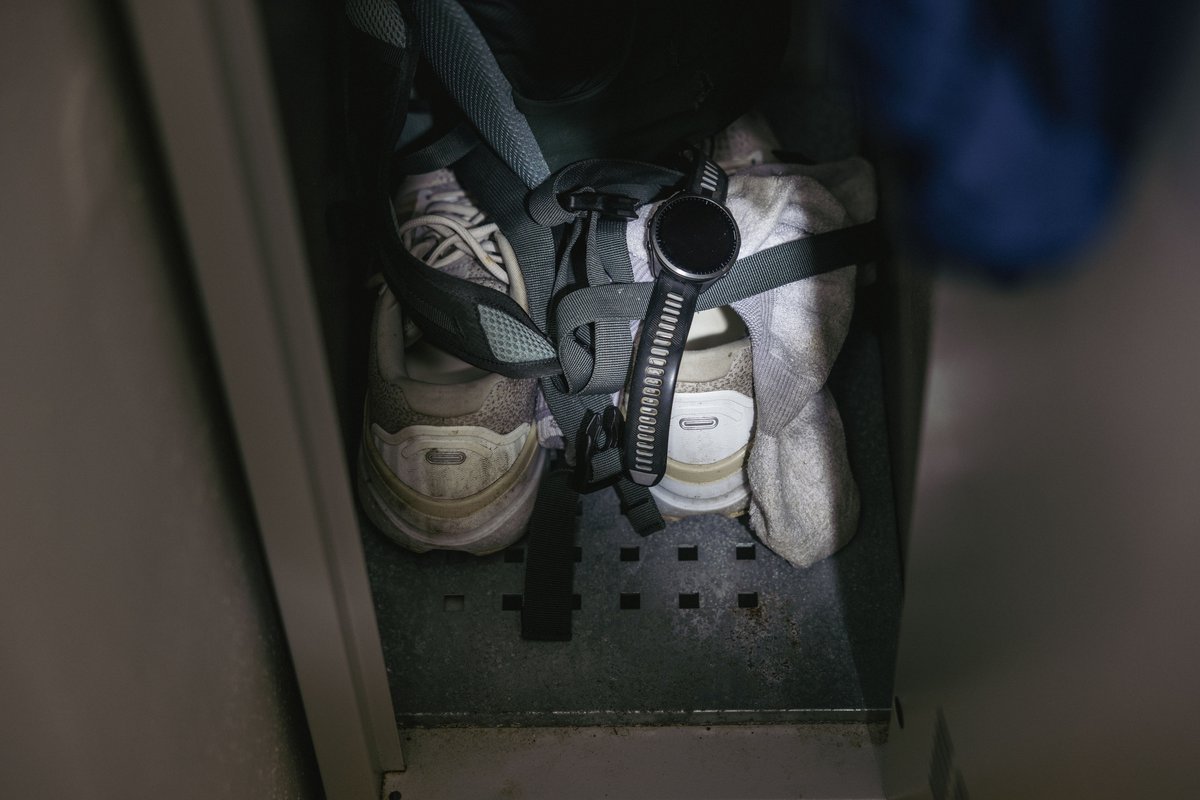
But even a trained runner like Jacob Sommer Simonsen can hit the wall like the rest of us:
“When I look back at the race, I remember hitting the wall at the halfway point and at the 27th kilometre. I can use a few mental tricks that I know work well for me at times like that. I try to focus on where I am at right now instead of thinking too much about how far I have to go. Instead I think: I just need to make it to the next mental milestone,” explains Jacob Sommer Simonsen, who knew that his parents were cheering for him at 9 and 18 kilometres during the marathon.
When asked why he runs, he replies:
"It has of course become very competitive, and I like seeing how good I can get. But I started running because it felt like the most natural thing to do. After all, that’s how we’re made to move: walking and running. The feeling of rhythm and being in a state of flow."
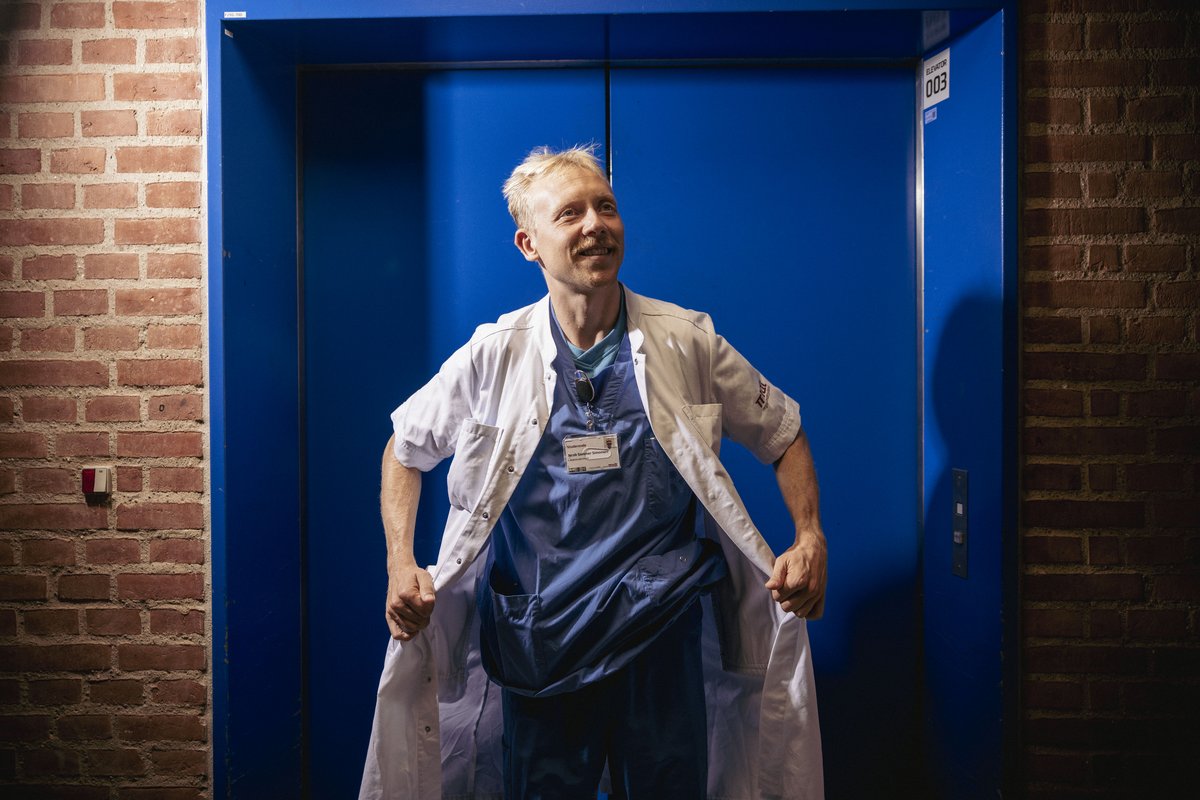
At around 15:00, Jacob puts down his stethoscope and laces up his running shoes, fitting in his second training session of the day on his way home:
"Running is smart because you can use it as a mode of transport. When I get home, I’m already done with my training for the day, which gives me time to focus on my family, cook food, read some books and play with the kids.”
Translated by Jessica Clarke Rasmussen

